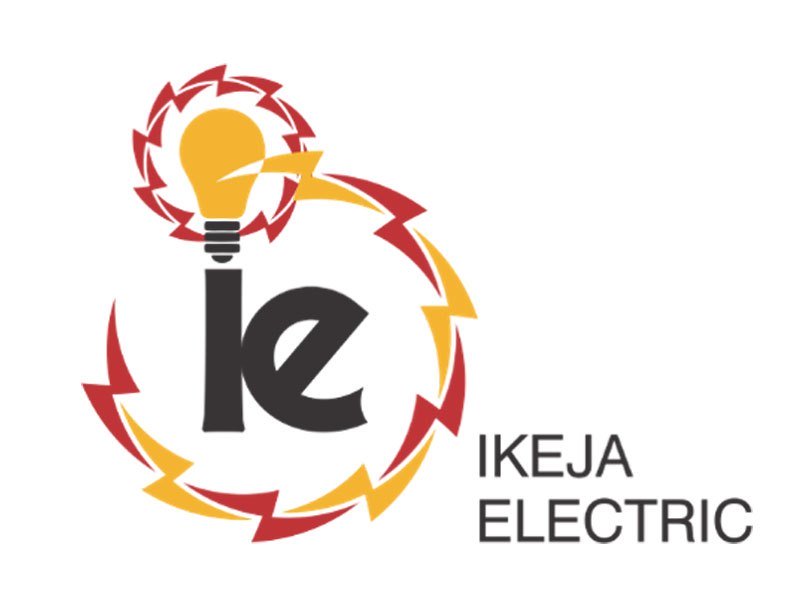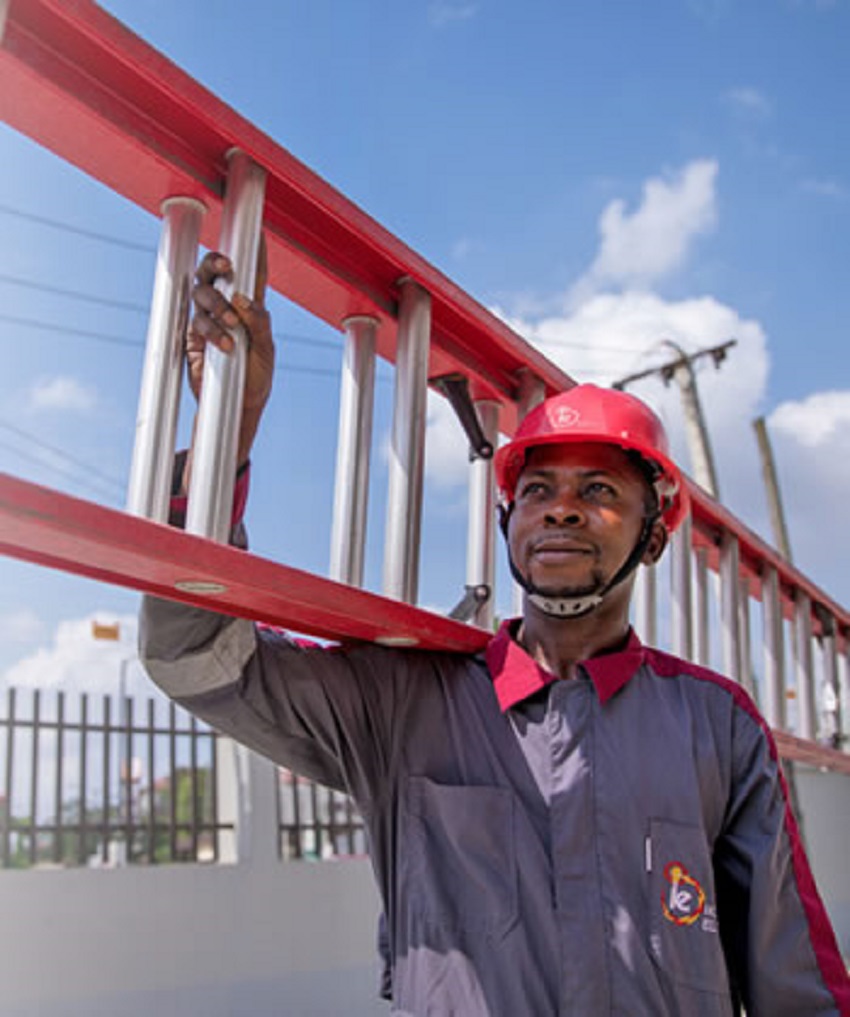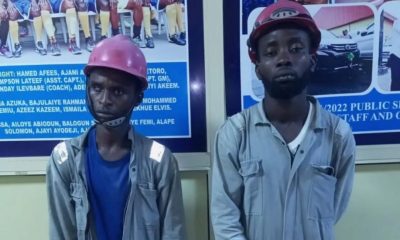General
Ikeja Electric Revamps Electrical Workshop at GTC Ikorodu
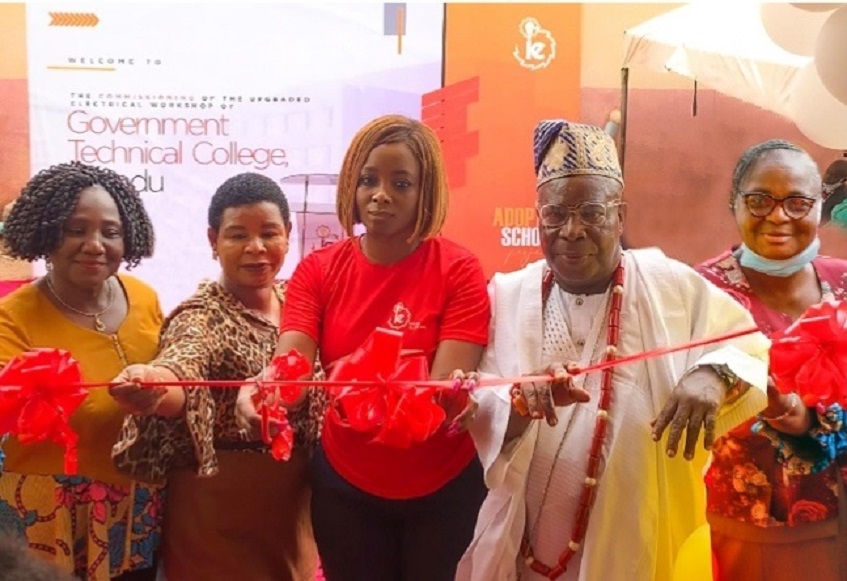
By Modupe Gbadeyanka
The electrical workshop at the Government Technical College (GTC) in Ikorodu, Lagos State, has been revamped by Ikeja Electric Plc, a leading electricity distribution firm in Nigeria.
This is one of the Corporate Social Responsibility (CSR) initiatives of the energy company aimed to boost technical education in the country.
According to the Chief Executive Officer (CEO) of Ikeja Electric, Mrs Folake Soetan, the organisation remains passionate about giving back to the communities where it operates.
“We care about our customers and we look for every opportunity to support them, through our Corporate Social Responsibility (CSR) platform, which has touched thousands of lives positively.
“We acknowledge the efforts of Federal, State and Local Governments in providing quality education for our children and raising the future leaders of tomorrow.
“No doubt, the responsibility being handled by the government is huge and demand is enormous. Government cannot do it all alone. That is why private organisations like Ikeja Electric throw their weight behind initiatives that support the government and drive development.
“At IE, we give back to the societies where we operate. Therefore, in line with our commitment towards education, we decided to rehabilitate the electrical workshop at Government Technical College (GTC), Ikorodu, in order to further enhance technical capacity building and create a conducive learning environment for the students,” Mrs Soetan said at the commissioning of the project on Tuesday, March 15, 2022, at the institution.
Speaking further, the Ikeja Electric chief noted that the philanthropic gesture demonstrated IE’s commitment to the goal of promoting quality education. There’s no doubt that education is the bedrock of development for any nation.
“Clearly, when technical skills are encouraged among young people, it helps a nation to develop in terms of technology, economy, manpower, self-sustenance, creation of jobs and reduction of unemployment,” she said.
While commending the company for the gesture, Lagos State Commissioner for Education, Mrs Folashade Adefisayo, who was represented by Dr Funke Oyetola, Director of Policy, Planning, Research and Statistics in the Lagos State Education Ministry, expressed gratitude to the Disco for contributing towards improving the facility and adding value to the school while encouraging them to partner more with the state.
She commended the exemplary gesture by the firm, noting that the impact will definitely be meaningful to the recipients because the quality of learning will improve thereby enhancing the capabilities and potentials of the students for future challenges.
Similarly, the Executive Secretary of Lagos State Technical and Vocational Education Board (LASTVEB), Ms Moronke Azeez thanked the Disco, saying the mission of the board was to provide industry response and gender-inclusive technical and vocational education.
According to her, the board was not only interested in the training of the students but was also engaging technical partners to help create startups and employment opportunities for them.
She said Lagos State currently has about 400 partners involved in the exercise, adding that there was a need for more private sector support of technical and vocational education in the state
In her remarks, the Principal of GTC, Mrs Kenku Adedoyin also applauded Ikeja Electric for expending resources and time in order to impact the lives of students and teachers.
According to her, the students feel very comfortable in the workshop as they are excited to learn because of the conducive environment.
“Therefore, we want to express our gratitude to Ikeja Electric for being our partner in progress in nurturing and supporting the talents that will graduate from this college. We want to reassure them that we will maintain it. And we believe you hear positive news about our students,” she said.
After unveiling the plaque, the guests toured the facility to witness the rehabilitation works carried out by Ikeja Electric. The DisCo noted that upgrading the Electrical Workshop was part of its contribution towards advancing technical education and capacity building among young talents.
General
NISO Attributes Electricity Woes to Inadequate Gas Supply

By Adedapo Adesanya
The Nigerian Independent System Operator (NISO) has attributed the poor power supply facing a considerable number of Nigerians to inadequate gas supply to thermal power plants.
Business Post reports that epileptic power supply has plagued consumers in Lagos, Oyo, Abuja, and Osun, among others, this month, leading to worries. Also, some businesses have recorded losses due to the epileptic power supply in their areas.
In a statement posted on its X handle, NISO disclosed that average available generation on the national grid currently stands at about 4,300 megawatts (MW), with the low output primarily attributed to gas supply constraints.
The system operator noted that thermal power plants, which account for the dominant share of Nigeria’s electricity generation mix, require an estimated 1,629.75 million standard cubic feet (MMSCF) of gas per day to operate at optimal capacity. However, as of February 23, 2026, actual gas supply to the plants was approximately 692.00 MMSCF per day.
The available supply represents less than 43 per cent of the daily gas requirement, resulting in constrained generation output and reduced electricity allocation to Distribution Companies (DisCos).
NISO, which independently manages the nation’s electricity grid, explained that any disruption or limitation in gas supply directly affects available generation capacity and overall grid output, given the heavy reliance on thermal plants.
It added that when total system generation drops significantly, the operator is compelled to implement load shedding across the network while dispatching available energy in line with allocation percentages approved under the Multi-Year Tariff Order (MYTO) framework of the Nigerian Electricity Regulatory Commission (NERC), to maintain grid stability and prevent system disturbances.
While expressing regret over the inconvenience to electricity consumers and market participants, NISO said it is working closely with relevant stakeholders to restore full energy allocation once gas supply improves and generation capacity returns to normal levels.
General
EFCC Re-Arraigns ex-AGF Malami, Wife, Son Over Alleged Money Laundering
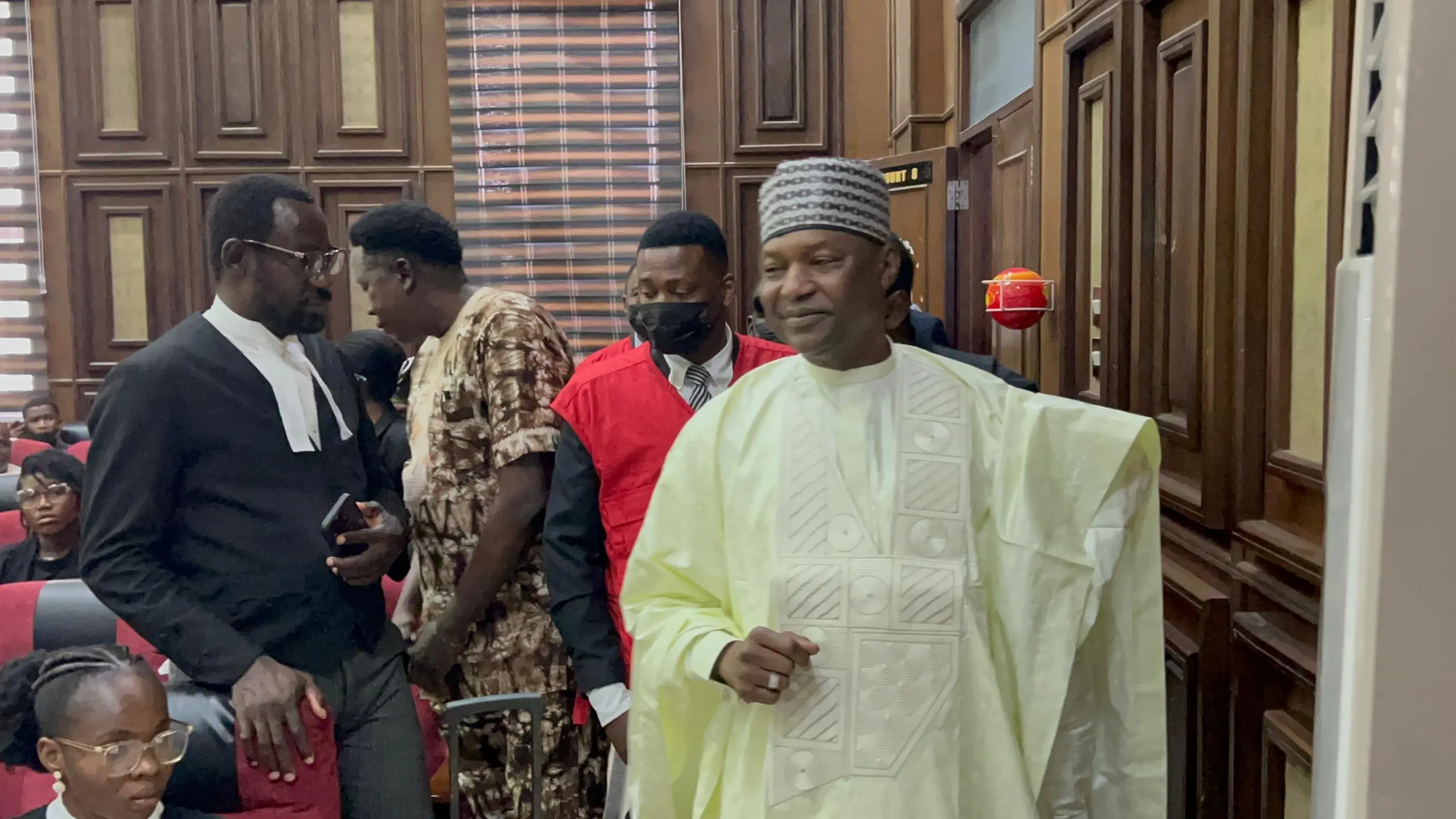
By Adedapo Adesanya
The Economic and Financial Crimes Commission (EFCC) has re-arraigned former Attorney-General of the Federation (AGF), Mr Abubakar Malami (SAN), his wife, Mrs Asabe Bashir, and son, Mr Abdulaziz Malami, on money laundering charges.
They were brought before Justice Joyce Abdulmalik of the Federal High Court in Abuja, following the re-assignment of the case to the new trial judge.
Upon resumed hearing, EFCC’s lawyer, Mr Jibrin Okutepa (SAN), informed the court that the matter was scheduled for defendants’ re-arraignment.
“The matter is coming before your lordship this morning for the very first time. I will be applying for the plea of the defendants to be taken,” he said.
Mr Okutepa equally applied that the sums listed in Counts 11 and 12 be corrected to read N325 million instead of N325 billion for Count 11, and N120 million instead of N120 billion for Count 12.
When it was not opposed by the defence lawyer, Mr Joseph Daudu (SAN), Justice Abdulmalik granted the oral application by Mr Okutepa.
The defendants, however, pleaded not guilty to the 16 counts preferred against them by the anti-graft agency bordering on money laundering.
Justice Obiora Egwuatu had, on February 12, withdrawn from the case shortly after the civil case filed by the EFCC was brought to him.
The case was formerly before Justice Emeka Nwite, who sat as a vacation judge during the Christmas/New Year break.
After the vacation period, the CJ reassigned the cases to Justice Egwuatu, who had now recused himself, before it was reassigned to Justice Abdulmalik.
The former AGF, his wife, and son were earlier arraigned before Justice Nwite on December 30, 2025.
While Malami and his son were remanded at Kuje Correctional Centre, Asabe was remanded at Suleja Correctional Centre before they were admitted to N500 million bail each, on January 7, with two sureties each in the like sum.
General
INEC Shifts 2027 Presidential, N’Assembly Elections to January 16

By Adedapo Adesanya
Nigeria will hold next year’s presidential and National Assembly elections a month earlier than planned, after the Independent National Electoral Commission (INEC) revised the polling schedule.
The elections will be held on January 16, instead of the previously announced date of February 20, INEC said in an X post, signed by Mr Mohammed Kudu Haruna, National Commissioner and Chairman, Information and Voter Education Committee.
There were also changes to the Governorship and State Houses of Assembly elections initially fixed for Saturday, March 6 2027, in line with the Electoral Act, 2022, have now been moved to Saturday, February 6, 2027.
The electoral commission said the changes were caused by the enactment of the Electoral Act, 2026 and the repeal of the Electoral Act, 2022, which introduced adjustments to statutory timelines governing pre-election and electoral activities.
“The Commission reviewed and realigned the schedule to ensure compliance with the new legal framework,” it said.
INEC said party primaries (including resolution of disputes) will commence on April 23, 2026 and end on May 30, 2026, after which Presidential and National Assembly campaigns will begin on August 19, 2026, while Governorship and State Houses of Assembly campaigns will begin on September 9, 2026.
It noted that campaigns will end 24 hours before Election Day, and political parties have been advised to strictly adhere to the timelines.
INEC also stated it will enforce compliance with the law.
The electoral body also rescheduled the Osun Governorship election which was earlier scheduled for Saturday, August 8 2026, by a week to Saturday, August 15, 2026.
INEC noted that some activities regarding the Ekiti and Osun governorship elections have already been conducted, and the remaining activities will be implemented in accordance with the Electoral Act, 2026.
Speaking at a news briefing in Abuja two weeks ago, the chairman of INEC, Mr Joash Amupitan, expressed the readiness of the commission to conduct the polls next year.
The timetable issued by the organisation for the polls at the time came when the federal parliament had yet to transmit the amended electoral bill to President Bola Tinubu for assent.
Later that week, the Senate passed the electoral bill, reducing the notice of elections from 360 days to 180 days, while the transmission of results was mandated with a proviso.
-

 Feature/OPED6 years ago
Feature/OPED6 years agoDavos was Different this year
-
Travel/Tourism10 years ago
Lagos Seals Western Lodge Hotel In Ikorodu
-

 Showbiz3 years ago
Showbiz3 years agoEstranged Lover Releases Videos of Empress Njamah Bathing
-

 Banking8 years ago
Banking8 years agoSort Codes of GTBank Branches in Nigeria
-

 Economy3 years ago
Economy3 years agoSubsidy Removal: CNG at N130 Per Litre Cheaper Than Petrol—IPMAN
-

 Banking3 years ago
Banking3 years agoSort Codes of UBA Branches in Nigeria
-

 Banking3 years ago
Banking3 years agoFirst Bank Announces Planned Downtime
-

 Sports3 years ago
Sports3 years agoHighest Paid Nigerian Footballer – How Much Do Nigerian Footballers Earn




